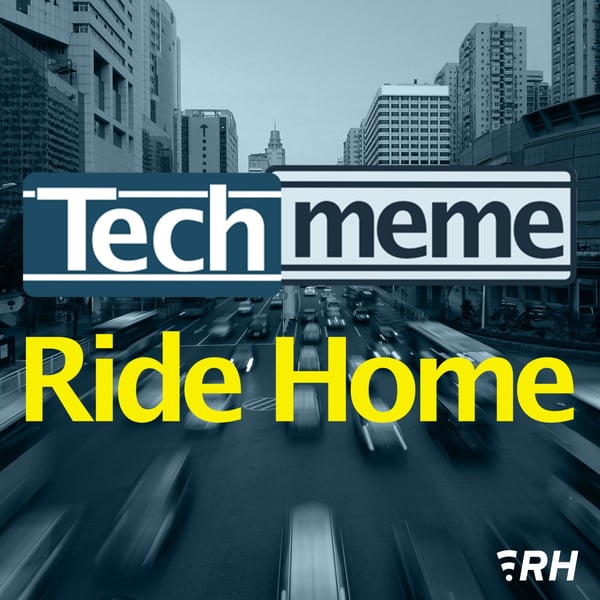Mon. 01/13 – Nvidia Isn’t Happy With New Chip Rules
Techmeme Ride Home
Brian McCullough
4.7 • 984 Ratings
🗓️ 13 January 2025
⏱️ 18 minutes
🧾️ Download transcript
Summary
The Biden administration unveils its long planned new chip export rules, and Nvidia isn’t happy. That whole botched Sonos app debacle has cost the CEO his job. Why we might not see blockbuster tech IPOs this year. Why some of Nvidia’s customers are returning Blackwell chips. And say hello to China’s answer to Instagram.
Sponsors:
Links:
- US imposes export controls on chips for AI to counter China (FT)
- Sonos CEO Leaving After Botched App Revamp Led to Customer Revolt (Bloomberg)
- Sonos CEO Patrick Spence steps down after disastrous app launch (The Verge)
- Silicon Valley’s largest start-ups to shun IPOs in 2025 (Financial Times)
- Nvidia’s Top Customers Face Delays From Glitchy AI Chip Racks (The Information)
- Xiaohongshu, China’s answer to Instagram, hits no. 1 on the App Store as TikTok faces US shutdown (TechCrunch)
See Privacy Policy at https://art19.com/privacy and California Privacy Notice at https://art19.com/privacy#do-not-sell-my-info.
Transcript
Click on a timestamp to play from that location
| 0:00.0 | Welcome to the TechMeme right home for Monday, January 13th, 2025. I'm Brian McCullough today. The Biden administration unveils its long-planned new chip export rules, and Invidia isn't happy. That whole botched Sonos app debacle has cost the CEO his job. Why we might not see Blockbuster Tech IPOs this year, why some |
| 0:21.8 | Nvidia customers are returning Blackwell chips, and say hello to China's answer to Instagram. |
| 0:26.9 | Here's what you miss today in the world of tech. |
| 0:33.1 | The Biden administration has unveiled new chip export rules, and NVIDIA, among others, aren't happy. |
| 0:39.7 | First, the details on the new rules. They give 18 key allies full AI chips access |
| 0:45.1 | while requiring licenses from most other countries, including China. |
| 0:49.3 | Chip orders with collective computation power up to 1,700 advanced GPUs need no license and don't count against |
| 0:56.8 | country-specific chip caps. These export rules enter a 120-day consultation period requiring |
| 1:01.9 | the Trump administration to consider input, potentially modify the rules all before enforcing them, |
| 1:07.7 | quoting the Financial Times. This policy aims to make it harder for China to use |
| 1:12.6 | other countries to circumvent existing U.S. restrictions and get technology that can be used for |
| 1:17.1 | everything from nuclear weapons to modeling hypersonic missiles. The rule both provides greater |
| 1:21.8 | clarity to our international partners and to industry and counters the serious circumvention |
| 1:26.1 | and related national security risks posed |
| 1:28.2 | by countries of concern and malicious actors who may seek to use the advanced American technologies |
| 1:32.8 | against us, said U.S. national security advisor Jake Sullivan. The regime creates a three-tier |
| 1:38.5 | licensing system for chips used to power data centers that process AI computations, the top tier, |
| 1:43.9 | which includes G7 members |
| 1:45.3 | in addition to countries such as Australia, New Zealand, South Korea, Taiwan, the Netherlands, |
| 1:49.5 | and Ireland will face no restrictions. The third tier includes nations such as China, Iran, |
| 1:55.3 | Russia, and North Korea, to which U.S. groups can, in effect, not export. The middle tier of more than 100 countries will |
| 2:01.9 | face caps and licenses for export volumes over those limits, end quote. And quoting the journal, |
... |
Please login to see the full transcript.
Disclaimer: The podcast and artwork embedded on this page are from Brian McCullough, and are the property of its owner and not affiliated with or endorsed by Tapesearch.
Generated transcripts are the property of Brian McCullough and are distributed freely under the Fair Use doctrine. Transcripts generated by Tapesearch are not guaranteed to be accurate.
Copyright © Tapesearch 2025.

